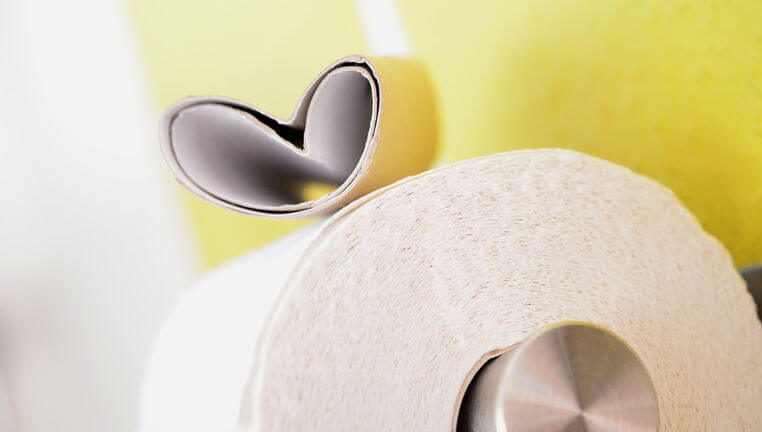Probably the commonest side-effect of having days with only minimal calorie intake, such as on the intermittent fasting patterns of 5:2, 4:3 and ADF is constipation. If you find that you do not need to strain despite having fewer bowel movements, this is not a problem – apart from a possible temporary increase in weight as the food collects. If, however, you develop true constipation with discomfort and straining while you are intermittent fasting, the tips that follow may be helpful.
The traditional advice from doctors and health professionals is to increase your fibre consumption, drink more water and take some exercise.
Fibre should be ‘soluble’ fibre such as is found in oats, chia seeds, flaxseed, pulses (legumes), psyllium husk and certain fruits and vegetables (notably passion fruit, prunes, figs, avocados and brussels sprouts).
Water: if you are dehydrated, this can worsen constipation, but if you are adequately hydrated drinking more will not necessarily help. It is important to drink plenty on fast days as you are not obtaining any water from your foods as you do on non-fast days.
Exercise such as jogging, brisk walking, aerobics etc shakes up your intestines a little and helps things move along.
However, if you already have a high-fibre diet, drink plenty of water and exercise, but are still having problems with constipation after fasting days, further increasing fibre, water and exercise may not be any help.1 What else can help with constipation?
Probiotics: supplementation with certain probiotics, especially the bacterium called Bifidobacterium has been shown to help constipation caused by low calorie dieting and Lactobacillus may also be helpful.1 Weight loss can affect the normal balance of gut bacteria, which may be why probiotics can help.
Natural live yoghurt, which normally contains Lactobacillus and, if possible, with added Bifidobacterium, together with an oat-based cereal, such as muesli or granola topped with figs or prunes, could bring together the elements of probiotics and soluble fibre in one healthy breakfast!
Magnesium has a laxative effect (and there is some speculation that the studies showing that increased water consumption helps with constipation might actually have achieved their improvements from the magnesium content in hard water). Magnesium is a mineral that is often deficient in our diets, possibly due to modern farming practices. Absorption of vitamin D and calcium both need adequate magnesium in the body. Magnesium supplementation can help with constipation and may also help with poor sleep, hypertension, and muscular aches and pains. The recommended dose of magnesium is 400mg per day of elemental magnesium. Some forms of magnesium are better absorbed than others with the poorly absorbed forms, such as magnesium oxide or magnesium hydroxide, having a bigger laxative effect while the better absorbed forms, such as magnesium citrate being more effective for insomnia. If you decide to supplement your diet with magnesium tablets, it is wise to build up your dose slowly as the laxative effect can be quite dramatic!
Coffee is well-known to stimulate the intestines and trigger bowel movement.
Laxatives are not recommended unless prescribed by your doctor. They can actually worsen constipation.
If these measures do not help your constipation problems you should probably visit your doctor to check that there is no other reason for the constipation.














